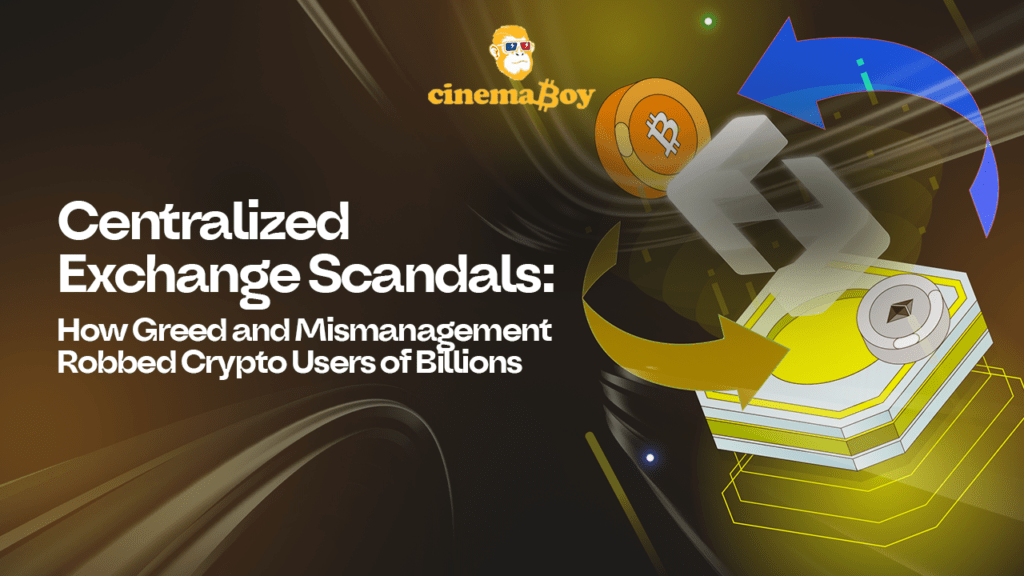The cryptocurrency industry, once hailed as the future of finance, has been marred by a series of high-profile scandals involving centralized exchanges. These platforms, designed to facilitate the trading of digital assets, have become breeding grounds for fraud, mismanagement, and outright theft. From the infamous collapse of Mt. Gox to the shocking downfall of FTX, the stories of these exchanges reveal a troubling pattern of greed, negligence, and betrayal. This article delves into the dark side of centralized exchanges, exploring how billions of dollars were lost, trust was shattered, and what lessons can be learned to prevent future disasters.
The Allure and Danger of Centralized Exchanges
Centralized exchanges (CEXs) have long been the gateway for millions of users to enter the world of cryptocurrencies. They offer convenience, liquidity, and a user-friendly interface, making them the preferred choice for novice and experienced traders. However, this centralization comes with significant risks. Unlike decentralized exchanges (DEXs), which operate on blockchain technology and allow users to retain control of their funds, CEXs require users to deposit their assets into the exchange’s custody. This creates a single point of failure, leaving users vulnerable to hacking, mismanagement, and outright scams.
The Infamous Collapse of Mt. Gox
The story of centralized exchange scams begins with Mt. Gox, once the largest Bitcoin exchange in the world. Founded in 2010, Mt. Gox handled over 70% of all Bitcoin transactions at its peak. However, in 2014, the exchange abruptly halted withdrawals, citing technical issues. It was later revealed that Mt. Gox had lost approximately 850,000 BTC (worth around $450 million at the time) due to a combination of hacking and alleged mismanagement by its CEO, Mark Karpelès.
The collapse of Mt. Gox sent shockwaves through the cryptocurrency community, eroding trust in centralized exchanges and highlighting the need for better security measures. Karpelès was arrested and faced legal proceedings in Japan, but the damage was done. Thousands of users lost their funds, and the incident remains one of the most significant black marks in the history of cryptocurrency.
Read more: Best Crypto Presales of 2025: Which Token at $0.01 USDT Will Skyrocket First?
The BitConnect Ponzi Scheme
BitConnect, a cryptocurrency exchange and lending platform, is another notorious example of how centralized exchanges can be used to perpetrate fraud. Operating as a high-yield investment program, BitConnect promised users astronomical returns. However, in 2018, the platform collapsed, revealing itself to be a Ponzi scheme that defrauded billions of dollars of investors.
The founder, Satish Kumbhani, was charged by the U.S. Securities and Exchange Commission (SEC) and is currently a fugitive. The BitConnect scandal not only resulted in massive financial losses but also damaged the reputation of the entire cryptocurrency industry, as it highlighted the prevalence of fraudulent schemes masquerading as legitimate investment opportunities.
The Thodex Heist
In 2021, the Turkish exchange Thodex made headlines when it abruptly halted withdrawals, and its CEO, Faruk Fatih Özer, fled the country with an estimated $2 billion in user funds. The incident left hundreds of thousands of users in financial ruin and sparked outrage across the cryptocurrency community.
Özer was eventually arrested in Albania in 2022 and faces extradition to Turkey. The Thodex heist is a stark reminder of the risks associated with centralized exchanges, particularly in regions with lax regulatory oversight. It also underscores the importance of thorough due diligence before trusting an exchange with your funds.
The FTX Debacle
Perhaps the most shocking and high-profile case in recent years is the collapse of FTX, once one of the world’s largest and most respected cryptocurrency exchanges. Founded by Sam Bankman-Fried (SBF), FTX was hailed as a model of innovation and transparency in the crypto industry. However, in 2022, the exchange imploded, revealing a web of mismanagement, fraud, and misuse of customer funds.
Bankman-Fried was arrested and charged with multiple counts of fraud, including allegations that he used customer funds to prop up his hedge fund, Alameda Research. The collapse of FTX resulted in billions of dollars in losses and sent shockwaves through the financial world. Bankman-Fried was found guilty in 2023 and faces significant prison time, but the fallout from the FTX debacle continues to reverberate throughout the industry.
Related article: 56% Approval Odds: Will Dogecoin ETFs Finally Get the Green Light?
Lessons Learned and the Path Forward
The stories of these centralized exchange scams serve as cautionary tales for the cryptocurrency industry. They highlight the dangers of centralization, the importance of transparency, and the need for robust regulatory oversight. While the promise of decentralized finance (DeFi) offers a potential solution to some of these issues, the road to widespread adoption is fraught with challenges.
For users, the key takeaway is to exercise caution and conduct thorough research before trusting any exchange with their funds. Decentralized exchanges and self-custody solutions offer greater security and control but also come with risks and complexities.
Conclusion: Trust, but Verify
The rise and fall of centralized exchange scams have left an indelible mark on the cryptocurrency industry. While the promise of digital assets remains as compelling as ever, the stories of Mt. Gox, QuadrigaCX, BitConnect, Thodex, and FTX are stark reminders of the risks involved. As the industry moves forward, it must prioritize transparency, accountability, and security to ensure that the mistakes of the past are not repeated. For users, the mantra remains the same: trust but verify.







